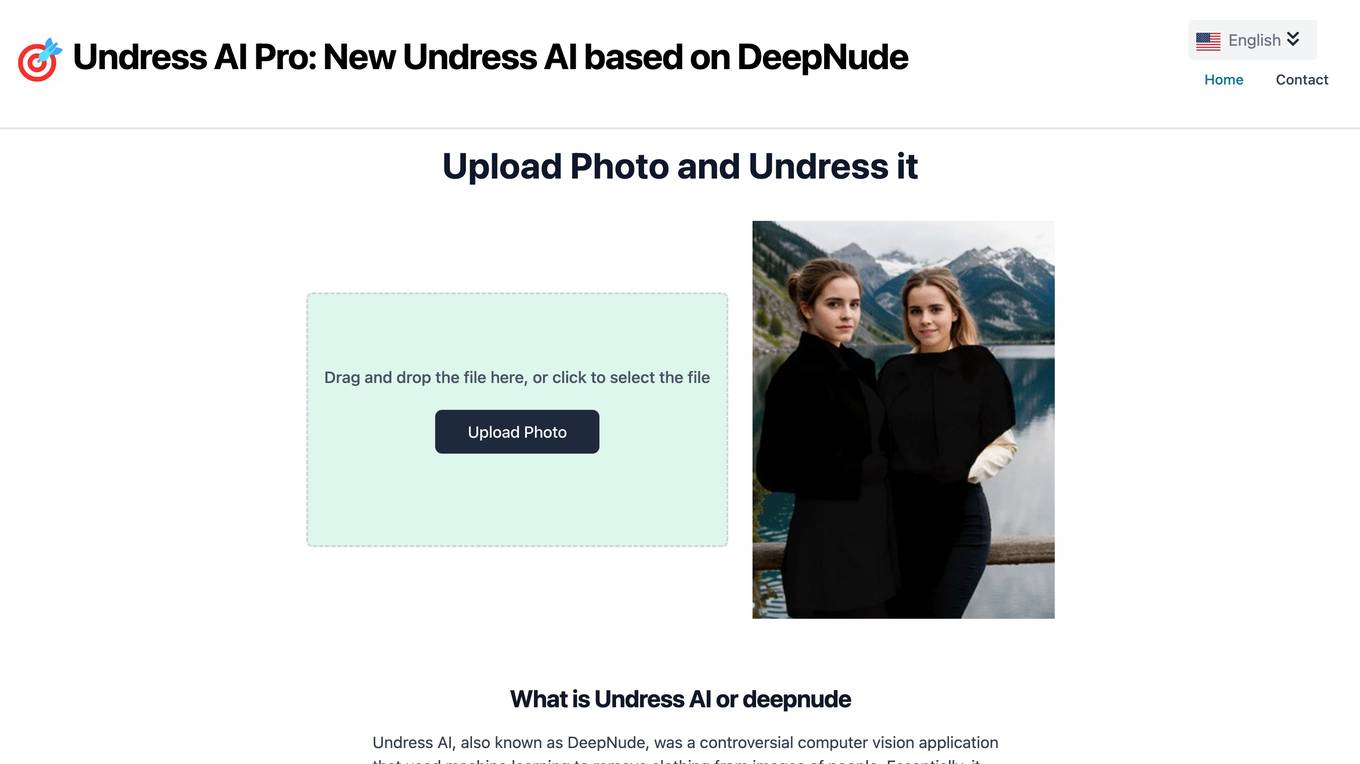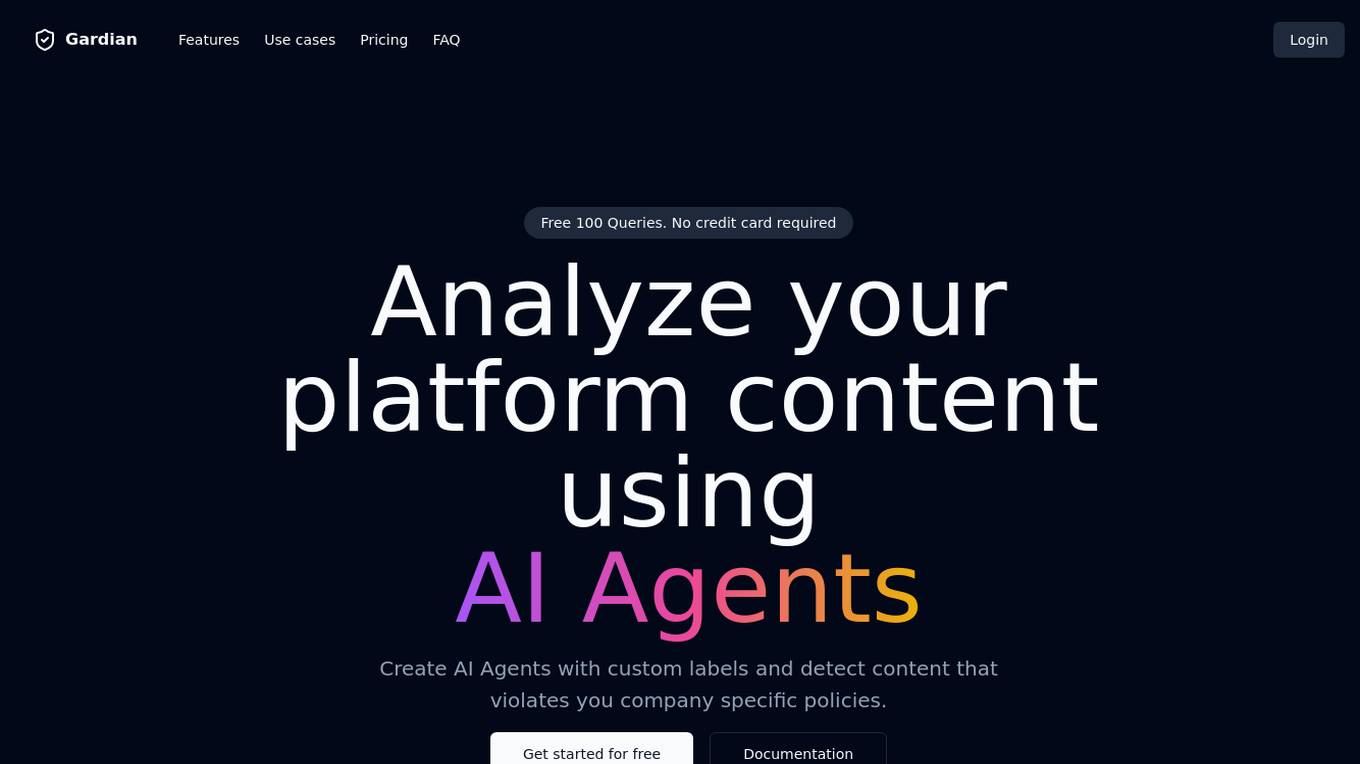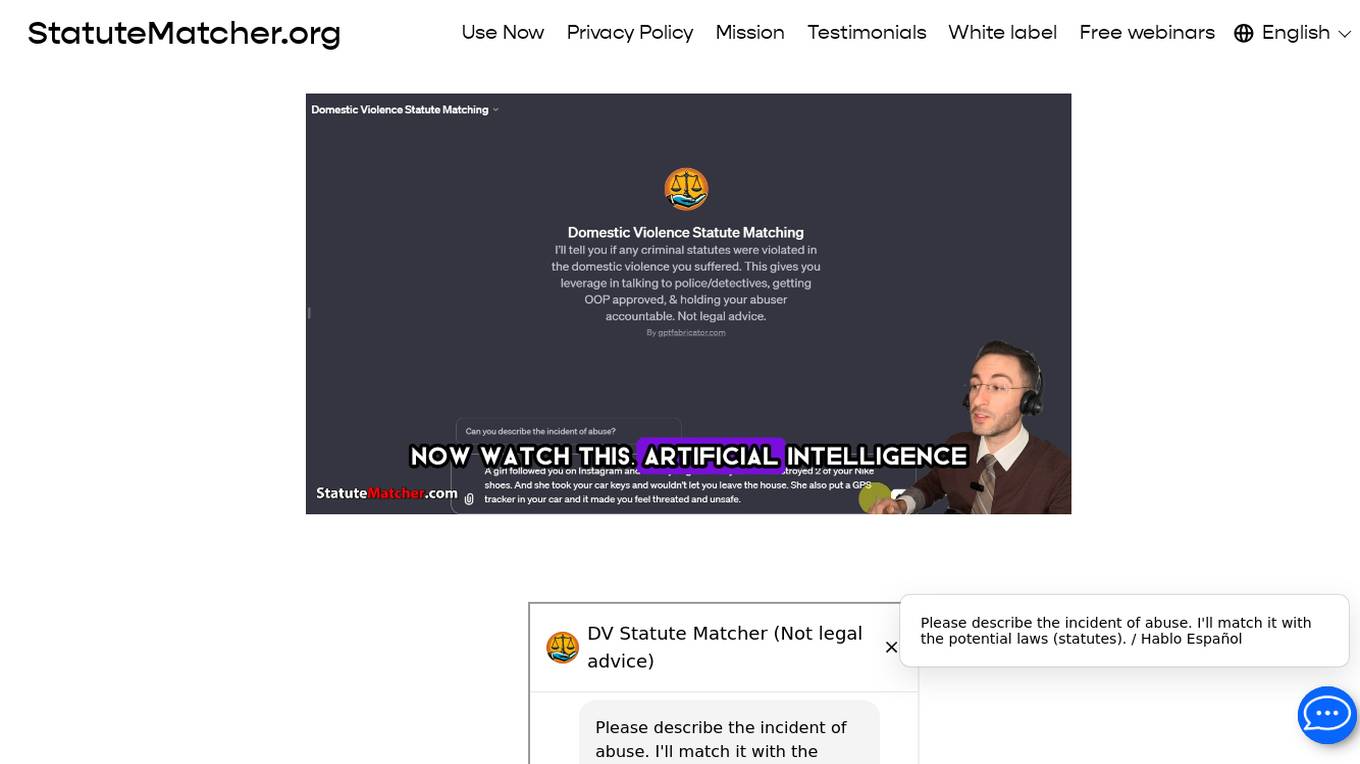Best AI tools for< Violate Privacy >
3 - AI tool Sites

Undress AI Pro
Undress AI Pro is a controversial computer vision application that uses machine learning to remove clothing from images of people. It was based on deep learning and generative adversarial networks (GANs). The technology powering Undress AI and DeepNude was based on deep learning and generative adversarial networks (GANs). GANs involve two neural networks competing against each other - a generator creates synthetic images trying to mimic the training data, while a discriminator tries to distinguish the real images from the generated ones. Through this adversarial process, the generator learns to produce increasingly realistic outputs. For Undress AI, the GAN was trained on a dataset of nude and clothed images, allowing it to "unclothe" people in new images by generating the nudity.

Gardian
Gardian is an AI tool designed to streamline content analysis processes by leveraging advanced AI technology. It allows users to create custom AI Agents with specific labels to detect and manage content that violates company policies. Gardian offers pre-configured models, custom analysis labels, a simple API for integration, multilanguage support, transparent pricing, and privacy protection. It serves various use cases such as content moderation, live chat moderation, and customer sentiment analysis, providing valuable insights and enhancing user experience.

StatuteMatcher
StatuteMatcher.org is an innovative AI-powered platform designed to enhance support for domestic violence survivors. The platform offers real-time legal resources by matching victims' experiences to relevant statutes, aiding in securing protective orders, strengthening court cases, and more. It is bilingual in Spanish and is primarily used by DV organizations, advocates, and survivors to streamline legal advocacy, boost efficiency, and achieve better outcomes. StatuteMatcher is available 24/7, maintains anonymity, provides real results, and covers various legal areas such as orders of protection, criminal law, family law, divorce law, child custody cases, child abuse law, immigration law, and cyberstalking law.